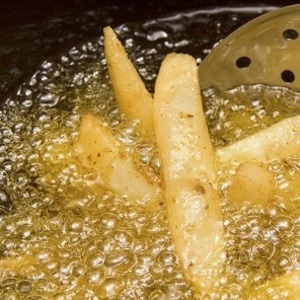Used cooking oil from KFCs in India to be converted to biodiesel

September 17, 2015
BY Advait Bio Fuel LLP
Yum! Restaurants India Pvt Ltd., which operates KFC, Taco Bell and Pizza Hut in India, has signed an agreement with Advait to collect its used cooking oil (UCO) from KFC in the Andhra and Telangana regions.
Yum! is aggressively expanding its presence in India. Advait, the only UCO collector in India certified by the International Sustainability and Carbon Certification, will convert the UCO into biodiesel or export the feedstock for biodiesel processing in Europe. Advait currently collects UCO in four South Indian states.
Advait aims to start collecting UCO throughout India with more than 15 collection yards in major cities by the end of this year.
Advait has partnered with one of the largest biodiesel producers in India, Southern Online Bio Technologies Ltd., to supply UCO to it and market its biodiesel in India and abroad. The biodiesel made will be sold to various road transport organizations in India.
Advertisement
Advertisement
Advertisement
Advertisement
Related Stories
The USDA maintained its outlook for 2025-’26 soybean oil use in biofuel production in its latest World Agricultural Supply and Demand Estimates report, released Aug. 12. The forecast for soybean oil prices was also unchanged.
U.S. soybean production for 2025 is forecast at 4.29 billion bushels, down 2% when compared to last year, according to the USDA National Agricultural Statistics Service’s latest monthly Crop Production report, released Aug. 12.
California’s new specified source feedstock attestation requirement: A critical new compliance step for renewable fuel producers
As of July 2025, California’s SCFS requires renewable fuel producers using specified source feedstocks to secure attestation letters reaching back to the point of origin. This marks a significant shift in compliance expectations.
At the University of Missouri, plant biochemist Jay Thelen is using arabidopsis as a powerful model to explore ways to boost oil production — an important step toward creating more sustainable, plant-based energy sources.
Iowa farmers have a new market opportunity for their 2025 soybean crop. Landus is expanding its Clean Fuel Regulation initiative, made possible by recent policy changes expected to increase Canada's demand for liquid biofuel.
Upcoming Events










